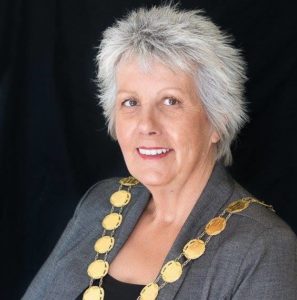Masterton Mayor, Lyn Patterson, has welcomed today’s response from the Office of the Auditor-General (OAG) to complaints relating to Council funding decisions for the town’s proposed multi-million dollar Civic Facility.
In its response, the OAG said it had received complaints about whether the Council had appropriately considered options, particularly around refurbishing and redeveloping the current town hall.
“Because of the project’s significance, and the concerns raised with us, we decided to look at aspects of the project. We have not carried out a full inquiry. However, we have some suggestions about processes and documentation relating to the issues we looked at,” the Office said in a statement.
It had also received a complaint suggesting that four councillors who were trustees of Masterton Trust Lands Trust may have had a conflict of interest in the project.
“In this case, the Council appears to have had processes in place to identify conflicts of interest. It took advice about the best way to manage the conflicts of interest it had identified and considered that advice. Those steps were reasonable and appropriate,” the OAG response states.
However, it said the councillors’ decision to participate in some civic facility decisions and not others had the potential to be confusing to the public or those wanting to understand the process.
“On this point, we note that the councillors did not formally record their interest and their decision to participate in the minutes for the Council’s 2021-31 long-term plan deliberations (although their interests and their decision to participate were recorded in email correspondence between elected members).”
“As we say in our conflicts of interest guidance, the public needs to have confidence that decisions involving activities carried out in the public interest or paid for using public funds are made impartially, for the right reasons, and not influenced by personal interests or ulterior motives.
“Formally recording interests and how any conflicts between those interests will be managed supports trust and confidence in the Council’s decision-making process. It also gives reassurance that elected members are acting in the interests of the community,” the OAG said.
The Office found that the Council had considered how it might responsibly spend ratepayers’ money on the civic facility and on 26 June, 2019, voted to progress the option of a new civic facility to public consultation, despite advice from the project steering group not to proceed at that time.
“The Steering Group noted that ‘there is not a demonstrated need for the project, it does not represent value for money and the group has significant concerns about the affordability of the project’,” the OAG response states.
This advice had been made publicly available on the Council’s website, it said.
“The resolutions for the 26 June 2019 Council meeting show that the Council considered the paper from the Steering Group. However, there is no record of the Council’s reaction to the Steering Group’s concerns or why it did not follow the Steering Group’s advice.”
“Elected members can make decisions that differ from recommendations put to them. However, where a decision is made contrary to advice, it is advisable to record the reasons for the decision in order to be able to evidence the rationale for it. This step can allay any potential concerns that advice was ignored, or not properly considered, when making decisions about spending public money. It also supports public trust and confidence.
“In the future, the Council should ensure that it records the reasons for key decisions, particularly where those decisions differ from advice it has received. The Council told us that, since these events, it has taken steps to improve the transparency of decision-making, including keeping fuller minutes of key discussions and decisions.”

Mayor Patterson said improvements to processes suggested by OAG were already being addressed by the Council.
“I welcome the Office of the Auditor-General’s response and note that the OAG has acknowledged changes already made by the Council.”
“The Council now aims to provider fuller minutes on the reasons for key decisions and has organised further conflict of interest training for elected members and staff,” she said.
At a meeting this week, a majority of Councillors voted in favour of reviewing the project but continuing with complementary work.
While originally being costed at $30.8 million, a recent Council report has stated the cost of the new facility could blow out to more than twice that amount.
The next steps for the project look set to be a matter for the new Council, which is set to be elected in October.
The OAG said that given the significance of the civic facility project to the Council, an OAG-appointed auditor will take an ongoing interest in the project.



